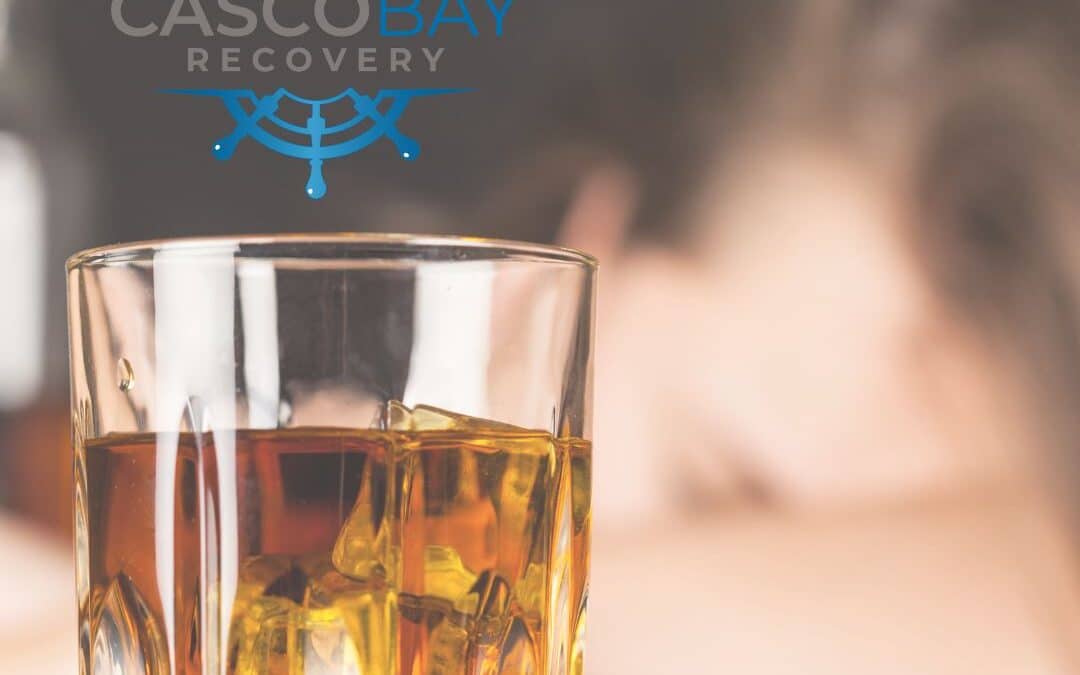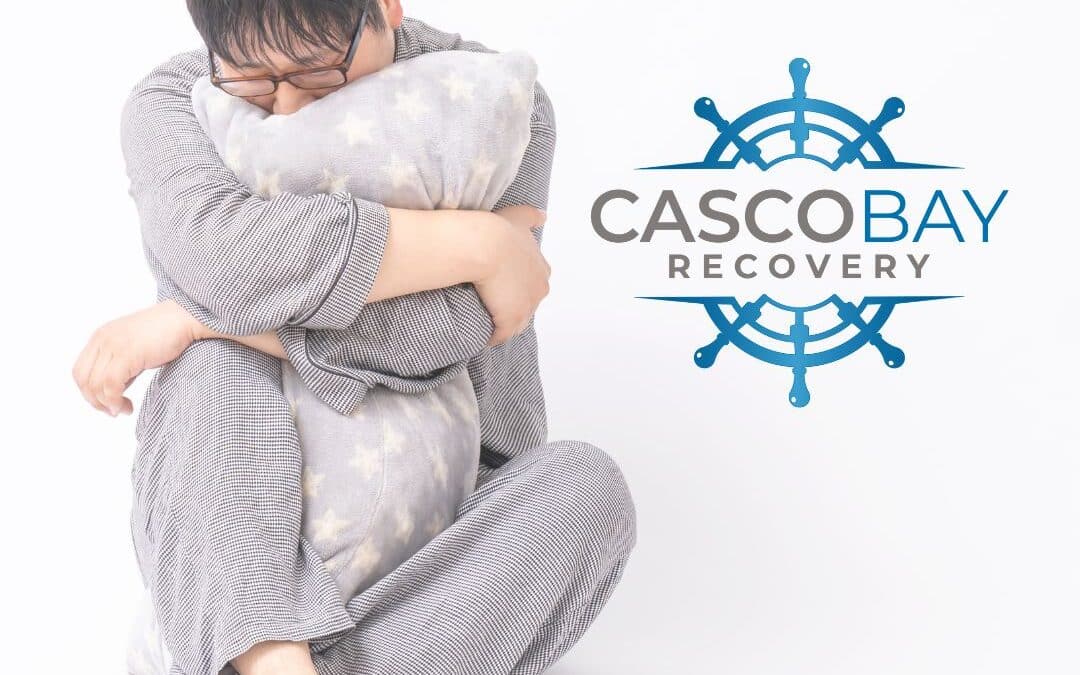For many people, a drink or two is their preferred way to relax and unwind after a hard day at work. For some, it’s a way for them to get out and have some fun with friends or coworkers. When getting drinks with family, friends, and/or co-workers though, one has to beware of the side effects of alcohol and if these side effects stimulate a person or slow down a person. One should also be aware of is alcohol a stimulant or not.
A common “side effect” of having a couple of drinks with some friends or coworkers after work is that you might feel rejuvenated and even energized. As a result, people might assume that alcohol is a stimulant or an “upper.” In reality, though, alcohol is the exact opposite.
Alcohol on its own is actually a depressant. Where that feeling of energy or rejuvenation comes from is not the alcohol, but the act of drinking it and the environment you are in. In this blog, we will dig deeper into the question of “is alcohol a stimulant?” We will also discuss why people often mistake alcohol for a stimulant and the key differences between a stimulant or an “upper” and a depressive substance or a “downer”.
What’s the Difference Between A Stimulant and a Depressant?
To best understand the ways in which alcohol is considered a depressant and to better identify if a substance is an upper or a downer, it’s important to know the difference between the two. A substance is classified as either a stimulant or a depressant based on how it reacts with the central nervous system. While using stimulant or depressive drugs on their own can be dangerous, mixing them can be even more dangerous and possibly even lethal.
Stimulants
Also known as an upper, a stimulant is a type of substance that increases a person’s energy, mood, and alertness. It can also give someone a heightened feeling of self-confidence or self-worth. Is alcohol a stimulant though, is the question.
Stimulants work by speeding up the messages that are sent and received between the brain and the body’s nervous system. While the high that a stimulant can produce is often invigorating and pleasurable, it can also put a significant strain on the body. It can lead to extreme and even dangerous levels of cardiovascular and respiratory function, putting unneeded stress on the heart and lungs.
Imagine the feelings you experience from an adrenaline rush. Now make it even more extreme and that is what someone might experience when coming down from an upper. This “crash” then leads the person to take more and more uppers to avoid the feelings that come with it.
While on a stimulant, a person might experience any of the following:
- Decreased appetite
- Mood swings
- Dizziness
- Sweating
- Rush of euphoria
- Increased blood pressure
- Increased heart rate
- High energy levels and alertness
Common examples of uppers, both legal and illegal, include:
Depressants
While uppers typically make you feel happy and joyous, depressants, or downers, tend to do the opposite. A depressant is a type of substance that produces a sedative effect by slowing down the messages that go back and forth between the brain and nervous system.
Downers tend to make the person feel relaxed and even drowsy. They can also help mask the feeling of pain. While on a depressant, a person might experience any of the following:
- Slower reaction times
- Confusion
- Lack of judgment
- Decrease in blood pressure
- Decrease in heart and respiratory rates
- Extreme relaxation
- Slurred speech
- Nausea
- Vomiting
- Risk of memory loss
- Risk of unconsciousness
Common examples of downers, both legal and illegal include:
- Alcohol
- Benzos
- Barbituates
- Heroin
- Fentanyl
- Prescription painkillers
Why Is Alcohol Considered A Depressant?
After looking at the characteristics of both uppers and downers above, it is possible for alcohol to fall into either category. After all, alcohol does have some effects that are typically associated with stimulants such as bursts of energy, cheerfulness, and makes you feel more confident. It can also raise your heart rate.
So, is alcohol a stimulant or depressant? Well, the answer is still that it’s a depressant. The reason alcohol is not labeled as a stimulant is because while its effects mimic those of a stimulant, they last for a significantly shorter time than they would need to in order to qualify as one.
Think about what happens when you drink alcohol. Sure after those first few sips or even your first drink or two, you might feel great. You might feel like you have a ton of energy and the confidence to take on anything you want. However, after that starts to wear off, or you continue drinking, your demeanor is likely to change.
You might begin to get tired or you might experience other significant depressive effects such as lack of coordination, nausea, vomiting, slurred speech, and slower reaction times. As a result, alcohol is formally classified as a depressant, especially when your blood alcohol content level gets above a .08.
What Are Some of the Common Depressant Side Effects of Alcohol?
As we already touched on above, when someone has been drinking, the more he or she drinks, the more he or she begins to experience some of the common effects of a depressant. Alcohol slows down the central nervous system, which is why when a person gets drunk, he or she tends to slur their words and react slower to certain things. Some of the other common side effects associated with drinking alcohol, especially when binge drinking is involved include:
- Sedation
- Lowered inhibitions
- Drowsiness
- Disorientation
- Lack of coordination
- Sadness
- Hopelessness
- Depression
How Can I Spot Someone Who Is Suffering From An Alcohol Problem?
Because of the ease in which it can be obtained and the way it is socially accepted, it can sometimes be tough to notice that either you or someone you know might be struggling with alcohol abuse. Going out on a Friday after work and getting a little buzzed is a pretty common thing in our society. In fact, based on the way it is portrayed in movies and TV, one could argue that it is even encouraged.
Differentiating between someone going out and having a good time and someone who is struggling with an alcohol-related problem can be a difficult thing to do, especially if you don’t know the warning signs to look out for. That being said, here are some of the potential signs and symptoms that you or someone you know might be suffering from alcohol abuse or addiction.
- Severe mood swings
- Experiencing hangover symptoms even when no alcohol had been consumed
- Irritability
- Constant excuses for drinking
- Finding empty alcohol bottles hidden
- Drinking in isolation
- Constantly blacking out from drinking
- Running into financial problems as a result of drinking
- Legal problems as a result of drinking
- Lying about drinking
- Lying about the amount of alcohol consumed
If you or someone you know checks off any of the boxes listed above, it might be time to seek help before it is too late.
Is Alcohol Abuse or Addiction Treatable?
If you suspect that you or someone you know might be suffering from alcohol abuse or addiction, the good news is there are options available to get treatment. The first step in that process is to detox.
Detoxing is done to rid the body of all the alcohol in your system and any other harmful substances that might be in your system as well. Without ridding the body of harmful substances it cannot truly begin to heal.
Due to the nature of detoxing and the side effects associated with it, detox should be done under the care and supervision of trained medical professionals. It can be done at a local medical facility, a dedicated detox center, or a treatment center that also offers detox services.
Attempting to self-detox can be dangerous and even life-threatening. It can also lead to an increased risk of relapsing.
Once detoxing has been completed, then the treatment process can truly begin. Depending on the severity of the alcohol addiction and the advice of your treatment professional, you will either begin inpatient or outpatient treatment.
One of the most popular and successful treatment methods for alcohol addiction is psychotherapies such as cognitive-behavioral therapy or CBT. CBT focuses on reprogramming the brain so it no longer thinks that it needs alcohol to function anymore. It also helps identify any patterns or behaviors that might have led to the addiction in the first place and teaches you how to deal with them in a more positive way.
Is Alcohol A Stimulant?
While alcohol might share some of the effects of a stimulant, scientifically it is classified as a depressant. At Casco Bay Recovery, we understand that whether or not is alcohol a stimulant or not is an issue. That’s why we offer a variety of treatment options and treat a variety of different stimulants and depressants.
We want everyone that comes to see us to leave and go on to live happy, healthy, and sober lives. For more information about our treatment options or to learn how you can get on the road to recovery, contact us today.








